Chatter Marks
Chatter Marks is a podcast of the Anchorage Museum, dedicated to exploring Alaska’s identity through the creative and critical thinking of ideas—past, present and future. Featuring interviews with artists, presenters, staff and others associated with the Anchorage Museum and its mission.
Chatter Marks is a podcast of the Anchorage Museum, dedicated to exploring Alaska’s identity through the creative and critical thinking of ideas—past, present and future. Featuring interviews with artists, presenters, staff and others associated with the Anchorage Museum and its mission.
Episodes
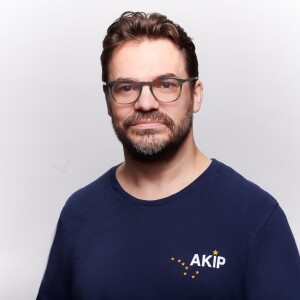
Friday May 31, 2024
EP 87 Exonerating Alaskans with Jory Knott
Friday May 31, 2024
Friday May 31, 2024
Jory Knott is the Executive Director of the Alaska Innocence Project. The Alaska Innocence Project started in 2008 under the direction of Bill Oberly, and it took seven years for them to get their first exoneration — it was the Fairbanks Four case, in which four Alaska Native men were wrongly convicted of murder and subsequently spent 18 years in prison. Jory says that that case involved a number of factors that led to a wrongful conviction, including eyewitness misidentification, incentivized witnesses, confirmation bias, racial animus, misconduct, and bad science. This was the case that got Jory interested in working with the Innocence Project — he was an intern then, but made the decision to go to law school so that he could work there full-time.
Studies that consider the number of people who have been wrongfully convicted in the U.S. since the late-1980s estimate that up to 5 percent of the prison population is wrongfully convicted. In Alaska, that would mean about 150 innocent people are in prison. Nationally, the average person who is wrongfully convicted spends 12 years in prison before they’re exonerated. And Alaska is among about a dozen other states that do not have a wrongful conviction compensation statute, so exonerees don’t get any money following their release. Even convicted felons receive things like re-entry services, recidivism prevention, education, job services and drug counseling. But Jory says that, despite all of this, he still has faith in the criminal justice system because, for the most part, it gets it right and wrongful convictions are rare.
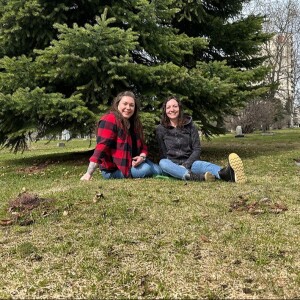
Thursday May 09, 2024
EP 86 Things can get better with Heidi Huppert
Thursday May 09, 2024
Thursday May 09, 2024
In this episode, Cody and co-host Aurora Ford talk to Heidi Huppert. Aurora is a former journalist and currently works at Covenant House Alaska; Heidi is the Chief Program Officer at Covenant House. Heidi’s perspective on homelessness in Alaska is unique because, in her younger years, she spent time on the streets of Anchorage. Her mom had a violent and abusive boyfriend and Heidi didn’t feel safe at home. So, one night after an especially brutal domestic situation, she found herself wandering around Spenard, trying to figure out what she was gonna do. She was about 12 years old and she had school in the morning. Because it was open and because it was familiar, she ended up just hanging out at McDonald’s.
She says that, for a long time, she didn’t tell her story. It was just too hard to relive those memories, and the violence and the pain that came with them. But right now, she’s at a point in her life where she sees how much power and strength there is in telling her story. How it can potentially help a young person understand that they might be in the middle of the worst moment or moments of their life, but it won’t last forever. Things can get better.
Heidi says that the issues of homelessness and human trafficking — another issue that she deals with a lot at work — are ones that we have to care about because they involve young people and they are the future of Alaska. They will one day hold the political, economic and social power. So, if we want our state to be healthy, we have to care about what is happening to our young people.
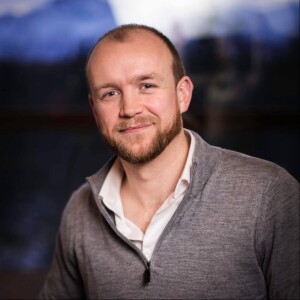
Wednesday Apr 24, 2024
EP 85 Furniture, basketball and family with Buddy Bailey
Wednesday Apr 24, 2024
Wednesday Apr 24, 2024
In the late 1990s, Buddy Bailey became the face of his dad’s furniture business, Bailey’s Furniture. He was 7 years old when he appeared in his first commercial — the crew filming it realized that the furniture itself didn’t have much character, so they suggested that Buddy get in front of the camera. He was a natural — his charisma and affability came easy. He’d chat about furniture and deals, and he’d even spin a basketball on his finger while he did it.
As the years went on, he became a local child celebrity. He continued being in Bailey’s Furniture commercials, and he was becoming a rising basketball star. When he was 15 or 16 years old, he remembers the Anchorage Daily News came out with a list of the most recognizable faces in Alaska and Buddy was number two, right behind U.S. Senator Ted Stevens.
Buddy says the lessons he learned from working at Bailey’s Furniture helped him on the basketball court. In basketball, like in retail, you’re dealing with personalities and egos, but you’re not always worried about money. So, basketball was easy. All he had to do was focus on scoring points and winning. This mentality, as well as his skill on the court, brought him all the way to playing college ball.
Today, he no longer works at Bailey’s Furniture, he quit in 2013 to pursue a career in finance and then in 2020 he founded a virtual lease-to-own business. He no longer plays ball semi-professionally either, but he does play recreationally. He says he’s probably a better shooter than he ever was and a better overall basketball player. He plays one-on-one almost every day at his local gym. He also coaches both of his kids’ basketball teams, teaching them that it’s not always about winning, it’s about learning life lessons and values — accountability, work ethic, the ability to fight for what you believe in, and how all of that will eventually filter over to your family.
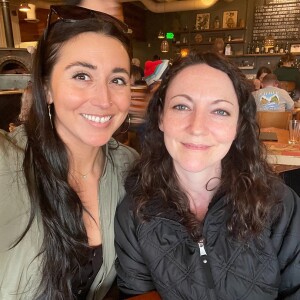
Thursday Apr 18, 2024
EP 84 Human trafficking in Alaska and decolonizing data with Josie Heyano
Thursday Apr 18, 2024
Thursday Apr 18, 2024
Cody and co-host Aurora Ford talk to Josie Heyano. Aurora is a former journalist and works at Covenant House Alaska; Josie is a member of the United States Advisory Council on Human Trafficking, a presidentially appointed position. She was the first Alaska Native person to be on the board. Every member of the board is a human trafficking survivor and advises and makes recommendations on federal anti-trafficking policies. Josie’s perspective and contribution to that conversation is Alaskan. She’s often thinking about rural communities and the human trafficking issues they face — she says that most of the trafficking she’s seen there has an element of substance use coercion, mental health coercion and/or forced drug trafficking. And because of the remoteness of these communities, it could take three days and a float plane and a boat ride to respond to a crime.
In 2022, Josie, Charlene Apok of Data for Indigenous Justice, Prevention Now and Ride My Road started a yearly gathering called “The Alaska Data Summit: Translating Data into Action Against Trafficking Exploitation and Missing and Murdered Indigenous Relatives.” One of the missions of the summit is to decolonize data so that, in the future, Native communities can reclaim and own their own data. It’s about taking back information so that it can be used for healing. Josie says that it’s about “making the data tell our stories” and “making it be representative of who we are.” Because data is a universal language, it doesn’t matter what field you work in, we all can understand numbers and their prevalence. So, by creating a universal data system throughout Alaska, information can be shared within the community, paving a path for a deeper understanding and better solutions to human trafficking.
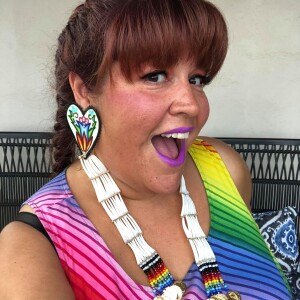
Thursday Mar 28, 2024
Thursday Mar 28, 2024
For years, Shyanne Beatty has wanted to move back home to Eagle, Alaska. It’s where everything started for her — her love for culture, language, art and music. Today, she sits on her property in Eagle, along the Yukon River, and she imagines herself as a young girl, running down the river banks with about 20 sled dogs or trapping marten out at 40 Mile or walking to school, singing to herself to ward off any curious wildlife. Reflecting on this, she realized that music has been foundational for so much in her life, it’s carried her and it’s protected her. Radio too. She remembers one Thanksgiving out at 40 Mile, she and her dad were listening to “Trapline Chatter” and they heard her grandparents wishing them a Happy Thanksgiving. The reach of radio had made its impression on her. So, when she left Eagle, that passion for radio and love for culture, language, art and music manifested itself in “Earthsongs,” the radio show she hosted on KNBA in Anchorage. It highlighted indigenous artists, musicians, and it was the first nationally-syndicated show out of the state of Alaska.
Shyanne is in the process of revitalizing her Native language, Han Hwechin Athabascan. There are only four people left who can speak the language, and she says the process of learning it has been difficult because people have been resistant to teaching her. This is because land, subsistence rights, language, culture and even children were taken away from her people. So, the insistence on guarding these things is understandable. To learn the language, Shyanne resorted to a more academic setting, mainly through classes.
Lately, for about six hours a week, she’s been working with her aunt to continue learning and documenting the language. Usually they get together and cook, chatting with each other in Han Hwechin the whole time. And for all this, she wanted to be back in Eagle, on her traditional lands; to have that sense of place and belonging. Because learning and documenting her culture and lifeways is one thing, but it’s also about creating a reservoir of culture that future generations can learn from.
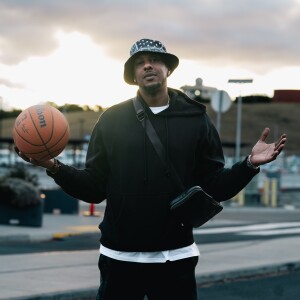
Monday Mar 11, 2024
EP 82 A chip on my shoulder with Mario Chalmers
Monday Mar 11, 2024
Monday Mar 11, 2024
Mario Chalmers is part of a small group of Alaskans to be drafted to the NBA, including guys like Carlos Boozer and Trajan Langdon. He’s won championships at every level: Two high school championships, one NCAA championship — the one where his 3-pointer put the game into overtime, with his team taking the win — and two NBA championships. He was in the NBA for nine seasons — seven years for the Miami Heat, one for the Memphis Grizzlies and one waived because of an injury. In those nine years, he was part of 99 playoff games. He played alongside guys like LeBron James and Dwyane Wade. He was the starting point guard for the Miami Heat when they won two championships in 2012 and 2013. He says that the only thing he has left to win is an Olympic gold medal.
In 2016, Mario tore his achilles tendon. It was a pivotal moment in his career, one that eventually led to him retiring from the NBA. But before he was comfortable with retiring, he tried making his way back by way of playing in G-League and overseas. Overall, he enjoyed his time playing outside the NBA, but he found himself reflecting on his career more than he was trying to regain it; he found himself being proud of his accomplishments and accepting this new chapter of his life, where he’s a full-time dad. He says it really dawned on him in 2021 when the Miami Heat signed him to a 10-day contract. He says that even though he didn’t get to play, it gave him the closure he was seeking — being able to walk off the court, healthy and on his own terms.
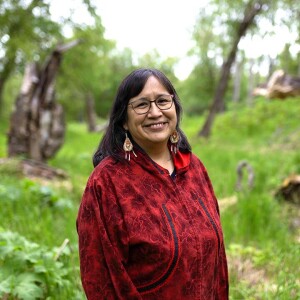
Wednesday Feb 14, 2024
EP 81 Life lessons from fish camp with Angela Gonzalez
Wednesday Feb 14, 2024
Wednesday Feb 14, 2024
Angela Gonzalez is an artist and a writer, and through her beadwork, her blog — the Athabascan Woman Blog — and the Fish Camp Barbie dioramas she creates, she shares her heritage. She says that it’s all a reflection of the way she grew up. Fish camp was a big part of that. As a kid, that’s where she spent most of her summers, about 16 miles from her home in Huslia, along the Koyukuk River. While the adults were harvesting the fish, her grandma would put Angela’s Barbies in settings that resembled what was happening all around them — catching the fish, hanging the fish, preserving it, cooking it. And then once she was old enough, she helped out with those chores. Angela says that she didn’t realize how special fish camp was until she started creating Fish Camp Barbie dioramas for her own daughters. It was a way to share her life with them and to teach them how to be proud of who they are.
From her time at Fish Camp, Angela also learned the importance of work — that if you want to succeed, then you need to work. Today, this manifests itself in her beading. It’s easy for her to sit down for a few hours and focus on a project. She’s beaded earrings, pins, the tops of gloves, slippers, coasters. A recent project she finished included caribou tufting, raised beadwork and silverberry beads that she harvested herself. She says she’s inspired by the beadwork of her late grandmas and aunts. Their color choices, designs, and techniques. She likes to think about the stories and the experiences that led them to create their art.
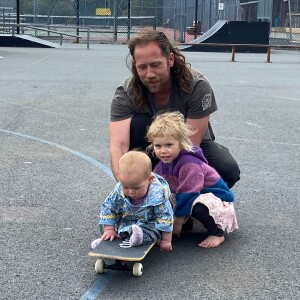
Monday Feb 05, 2024
EP 80 Searching for understanding and forgiveness with Robert Stark
Monday Feb 05, 2024
Monday Feb 05, 2024
Robert Stark is a former army infantryman and the author of Warflower, a book about his upbringing in Alaska and his time in the military. His upbringing was a turbulent one — his dad was absent, his mom struggled with addiction, his brother spent time in prison and his step-dad is serving life in prison for murder. He says he was known as the kid with the family of degenerates — people who drank alcohol, did drugs, stole, and went to prison. Eventually, he found himself struggling with his own alcohol and drug problem. So, he joined the army to travel and to learn more about himself. It was a part of his life that altered his way of thinking and understanding of the world.
It’s been 20 years since he served in Iraq, and he says he’s still working through it. He talks about an experience when one of his fellow infantrymen shot and killed an Iraqi man under questionable circumstances. It was a moment that made him start questioning everything — what they were really fighting for, and how was this man’s act so much different than the one that put his step-dad in prison for life? There was so much to work through after finishing his military service — on top of his family history, he was now thinking about the fog of war. So, he found himself dissociating from his memories and isolating himself for days at a time, smoking weed and drinking.
It took him years to step away from his substance abuse and to gain some clarity and accept the things he had seen and the things that he had done. He spent some time in India and Nepal doing yoga retreats and meditations. He would sit there and visualize the situations he struggled to understand — he would work through them as if he were the people acting them out and then he would embrace them with love and understanding of what led them to making the decisions they made. It’s a technique that helped him understand what he didn’t understand.
Today, in times of personal crisis, he regains his equilibrium by going on walks on his property in Happy Valley, Alaska. Peaceful walks in the woods, among the trees and the birds and the mountains in the distance. He thinks of his wife and his daughters and the man he wants to be — loving, dependable and present.


